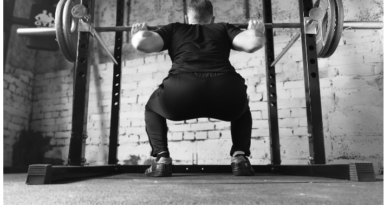Do I Need a Nightguard for Bruxism?
Teeth clenching or grinding while sleeping is pretty common among children and adults. This habit of clenching or grinding your teeth while sleeping is known as bruxism. Under normal conditions, people do not pay significant importance to this oral health complication. However, when bruxism starts causing headaches, tooth or jaw pain, or discomfort in your teeth, you need to talk to your dentist. The doctor will carefully examine your situation and suggest the best possible treatment for dealing with bruxism.
The most recommended treatment for bruxism is wearing a custom nightguard while sleeping. Continue reading this guide to explore more about dealing with bruxism and exploring how wearing a nightguard can help in dealing with bruxism.
What is Sleep Bruxism?
Clenching or grinding your teeth while falling asleep is known as sleep bruxism. Severe headaches and jaw and tooth pain indicate that you are suffering from sleep bruxism. If you often wake up with a headache or pain in your jaw or tooth, you need to consult with a doctor because you may be suffering from sleep bruxism.
Your dentist will carefully monitor these signs and symptoms of bruxism and suggest subsequent treatment. Most dentists recommend wearing a nightguard to protect your teeth from damage from grinding and clenching.
Bruxism in Children
It is pretty common for kids to grind or clench their teeth. Particularly, kids under 5 are habitual of clenching their teeth. Most kids leave this habit of teeth grinding without any treatment and do not cause any harm to their teeth.
However, you must consult your dentist as he may recommend treatment depending on the severity of bruxism.
What are Nightguards?
Nightguard is a retainer-like dental appliance that you wear at night to minimize the impact of teeth grinding. A nightguard has several names: mouthguards, occlusal guards, dental guards, nocturnal bite plates, or bite splints.
These devices are made of soft or hard plastic and cover the top or bottom set of your teeth. Nightguards function to cushion your teeth from the force of clenching and prevent the teeth from grinding together. Hence, these devices help prevent headaches, damaged teeth, and inflamed gums which mostly occur because of sleep bruxism.
Let’s discover more about the signs and symptoms of bruxism and the most recommended treatment methods to get rid of this issue.
Signs and Symptoms of Sleep Bruxism
The following are some of the common signs and symptoms of sleep bruxism.
- Waking up with headaches
- Chipped teeth
- Temporomandibular disorder, i.e., inflammation in the jaw because of teeth grinding
- Pain in the teeth
- Chronic grinding
If you are experiencing any of these symptoms, you must consult your dentist and seek professional treatment.
Over-the-Counter Nightguards
Nightguards are undoubtedly the best treatment for bruxism. Usually, nightguards are available at pharmacies and are worn without prescription. To use these mouthguards, you have to boil or microwave them as instructed. After that, allow it to cool for a few seconds, and then bite it to shape it into your mouth.
Custom Nightguards
Apart from the nightguards available in the pharmacies, you can also get a custom nightguard from your dentist. Custom nightguards are of better quality and fit comfortably on your teeth. Your dentist will take impressions of your teeth and then send the prepared mold to the dental laboratory.
The dental facility will prepare a custom-fitted nightguard for you. Once you wear this nightguard, your dentist will make the necessary adjustment to make sure that it fits comfortably on your teeth.
Generally, a customized nightguard is more expensive than the one you get from a local pharmacy. However, personalized mouthguards fit comfortably on your teeth and deliver better results than over-the-counter mouthguards. You can also order nightguard online.
How to Take Care of Your Nightguard?
Taking proper care of your nightguards is essential. If adequate care is not taken, your nightguard might get damaged and won’t protect your teeth from grinding or clenching. Let’s discuss a few ways to take care of your nightguards.
It is advised to wear the nightguard before sleeping. You can remove it as soon as you wake up. Initially, you might feel uncomfortable wearing a nightguard; however, you will adjust to it after wearing it for a couple of weeks.
You must wash your nightguard before and after each use. Rinse the nightguard with clean water and brush it using a toothbrush and toothpaste.
Avoid placing the nightguard in a sunny spot or hot area.
Avoid washing your nightguard with hot water. If you do so, the plastic could warp and would no longer fit on your teeth properly.
When you are not wearing your nightguard, ensure it is stored in a protective case. Once you find that your nightguard isn’t fitting appropriately or is loose or uncomfortable, you need to replace it immediately.




